
How CEOs Can Leverage Independent Directors to Bring More Women on Boards
April 20, 2022
By Bolster
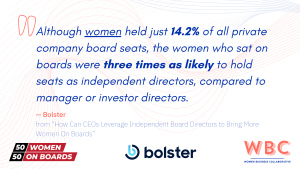
The following is an excerpt from the Women Leading Boards April 2022 Special Report – In Partnership With 50/50 Women On Boards™. Click here to view and download the full report.
Today, women hold approximately 27% of board seats in the Russell 3,000, representing an 80% increase since 2016. These public company boards include approximately 26,000 total seats nationwide. Small businesses and startup boards, however, are just as vast, yet are largely overlooked by emerging regulatory requirements: 10,000+ venture-backed startups raised a total of $164 billion in funding last year alone.
With the potential of nearly three times as many board seats on private vs. public companies, the opportunity for non-White, non-male candidates to secure a private board seat is immense.
Partnering with 250 private companies, Bolster, the executive talent marketplace, analyzed 650+ board directors to determine the composition, structure, and diversity of venture-backed startup boards.
One bright spot emerged from the research: Although women held just 14.2% of all private company board seats, the women who sat on boards were three times as likely to hold seats as independent directors, compared to manager or investor directors. This finding shows that there is a window of opportunity for women professionals to enter private company boards across the U.S.
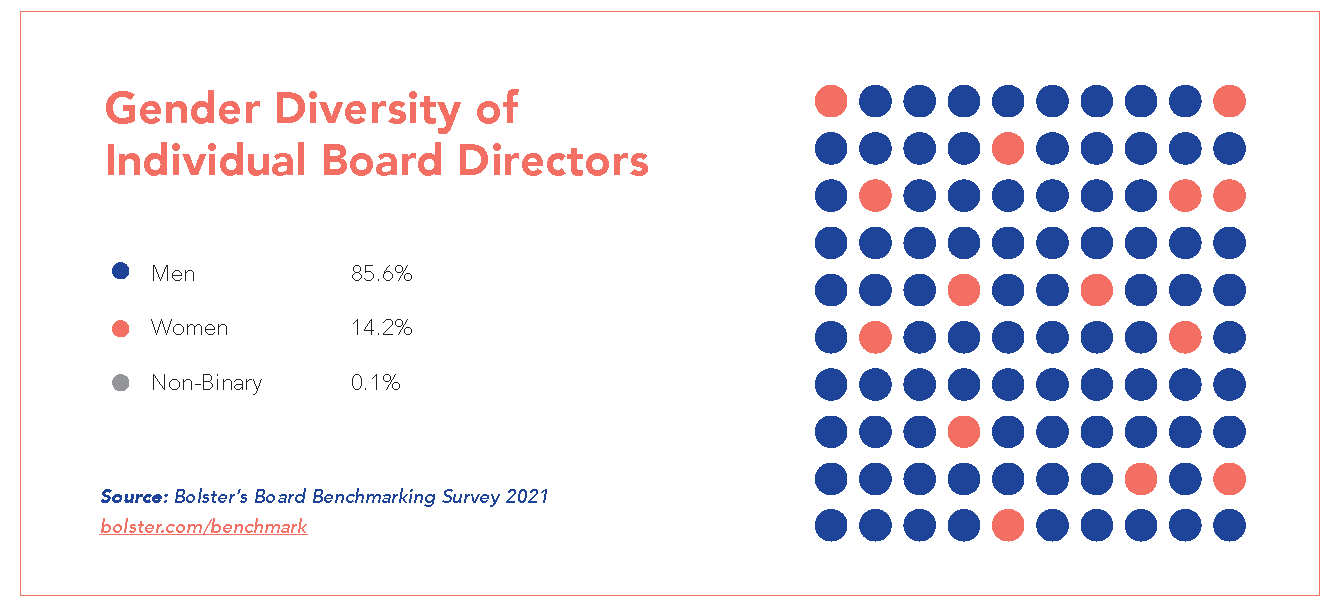
Although women held just 14.2% of all private company board seats, the women who sat on boards were three times as likely to hold seats as independent directors, compared to manager or investor directors.
The Role of Independent Directors on Private Company Boards
On private company boards, there exist three types of director seats: Management directors, (which tend to include the CEO or a member of the founding team), investors (who participated in a funding round for that business), and independent directors.
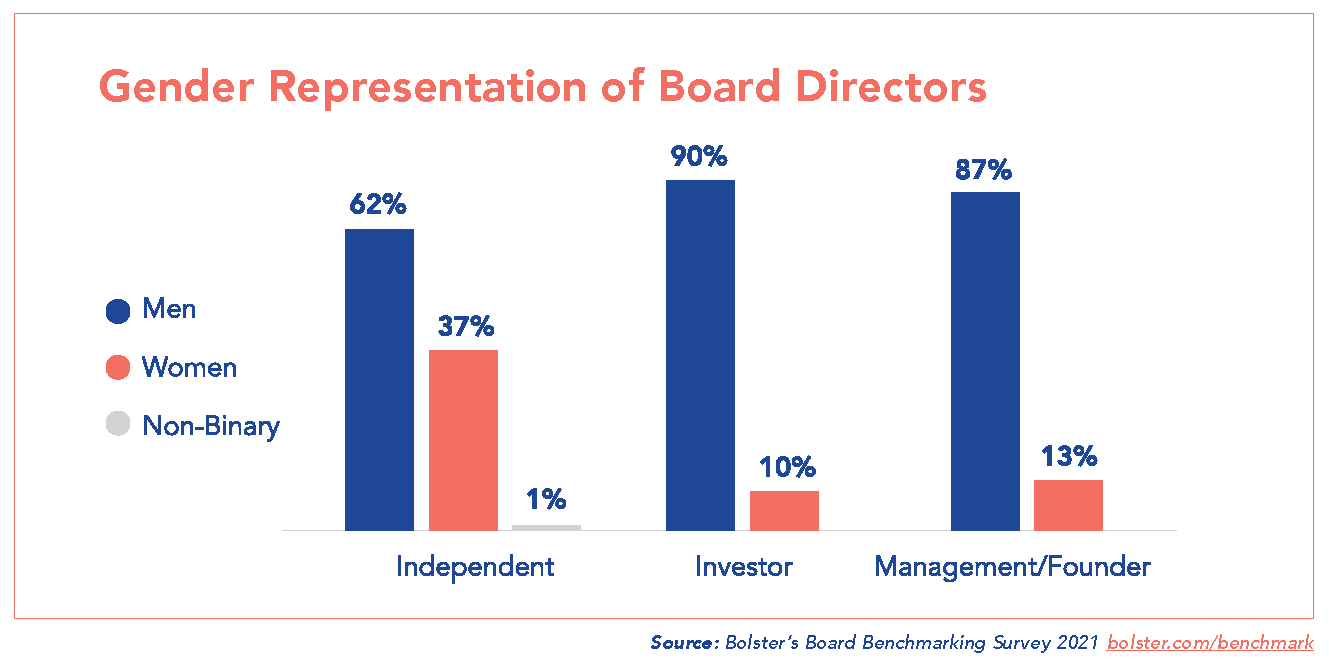
Independent directors are the most versatile position on a corporate board. CEOs often look to these positions for unique industry or functional expertise from a person who can provide top-tier perspective and strategic guidance to the executive team.
Despite the benefits that independent directors can bring at any stage of a business, we found that only one-third of startup boards have independent directors today, but nearly half of companies in the study expected to fill a board position in the next year. This represents a big opportunity to bring on more diversity at the earliest stages of a business.
In Bolster’s analysis of approximately 80 independent board directors, just 41% of independent directors on private boards have either a college degree or some college. This indicates that private companies are broadening their search criteria, which widens the opportunity to bring in candidates with differing backgrounds.
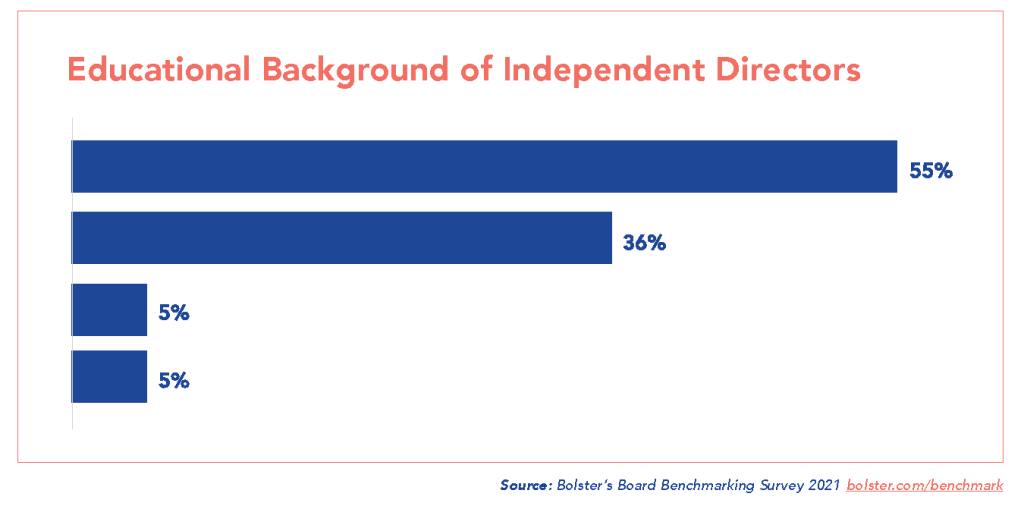
The Opportunity
The majority of private company boards have more than one Management director and two or more investors on their board, according to Bolster’s study. By limiting the number of Management director seats to one, private companies can encourage the inclusion of an independent director from an earlier stage in the business.
As Bolster CEO Matt Blumberg has written, there are many ways to support first-time directors on private company boards, which also gives boards access to a greater breadth of candidates for open positions. When venture-backed companies do decide to bring on an independent director, Bolster found that 9 in 10 are specifically looking to diversify their boards. Due to their unique structure and versatility, private company boards may carry the ripest opportunities for first-time board directors, including many women, people of color, and others from underrepresented groups who are looking to expand their professional footprint with a board role.
Through early board intervention and intentional commitments among private company CEOs, the face of corporate leadership can transform at the highest echelons. Company leaders can ensure a smooth transition for new board members by providing scaffolding to new directors, including a robust board onboarding process, assigning each new director a “board buddy,” and building in board 360s into their company operating systems. By spreading awareness and empowering more women leaders to seek out private company board seats, this trend will continue to impact board diversity in the years to come.
Bolster’s interactive board benchmark report is available on a complimentary basis to any CEO who creates a Bolster account and shares data from their own board. Learn more at Bolster.com.
Author
-
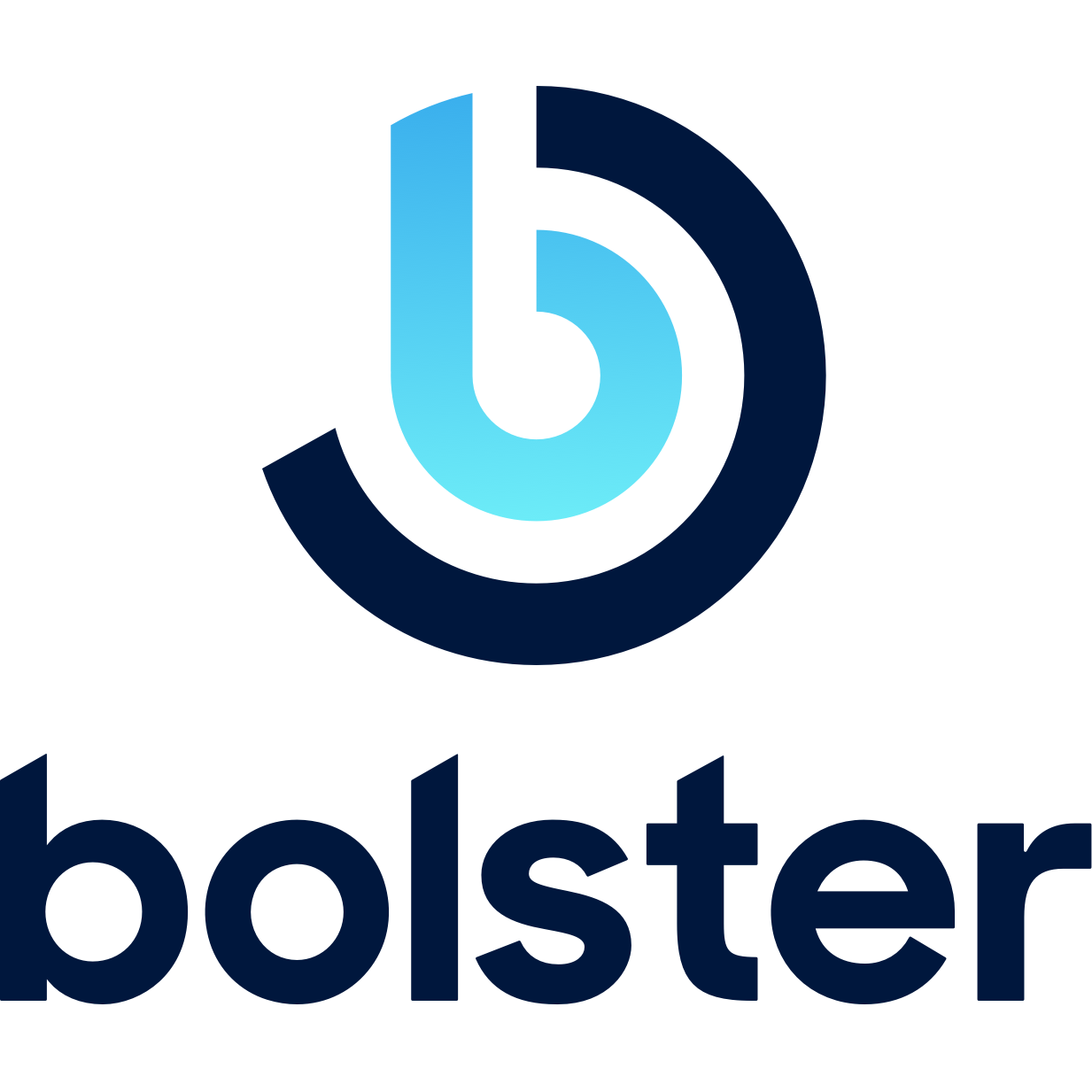
Bolster is an on-demand executive talent marketplace that helps accelerate companies’ growth by connecting them with experienced, highly vetted executives for interim, fractional, advisory, project-based, or board roles. Bolster also provides on-demand executives with software and services to help them manage their careers as independent consultants and provides startup and scaleup CEOs with software and content to help them assess, benchmark, and diversify their leadership teams and boards.
View all posts

